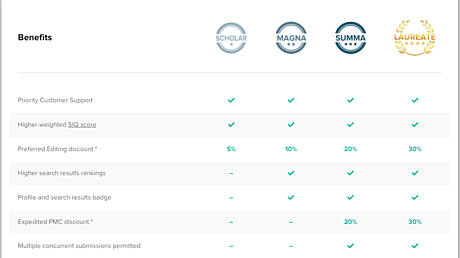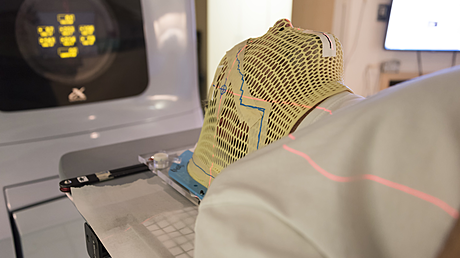Newsroom
Radiation Therapy for Cancer Patients With COVID-19
An article on treating COVID-19 positive Cancer patients with radiation therapy published in Cureus was recently picked up by News Medical. Read the Cureus article: Treating COVID-19 Positive Cancer Patients With Radiation Therapy: A Case Report From Epicenter of the Pandemic
Dec 18, 2020
The Link Between Rheumatoid Arthritis and Dementia
An article on the link between Rheumatoid Arthritis and Dementia published in Cureus was recently picked up by the Rheumatoid Arthritis Advisor. Read the Cureus article: The Link Between Rheumatoid Arthritis and Dementia: A Review Click the link below to see the news story.
Nov 20, 2020
Potential Role of Xylitol Plus Grapefruit Seed Extract Nasal Spray Solution in COVID-19
An article on the potential role of Xylitol plus grapefruit seed extract nasal spray solution in Covid-19 published in Cureus was recently picked up by News.Medical.net Read the Cureus article: Potential Role of Xylitol Plus Grapefruit Seed Extract Nasal Spray Solution in COVID-19: Case Series Click the link below to see the news story.
Nov 17, 2020
The Democratization of Medical Publishing as Seen on NBC, FOX, and more
Since the dawn of the medical journal at the beginning of the 18th century, politics, elitism and costs have heavily restricted the publishing of important medical research and clinical observations. The Cureus Journal of Medical Science (pronounced “curious”) was conceived by neurosurgeon and entrepreneur John R. Adler, M.D., with a mission to democratize medical knowledge thereby making it more accessible to physicians, researchers, patients, caregivers and the general public. Cureus is the first and only medical journal to offer a DIY approach to scientific publishing, providing unique step-by-step article templates to speed the publication process while ensuring 100 percent free access for readers. In 2020 Cureus’ submissions tripled relative to last year, partly attributable to the velocity with which important new medical knowledge was being generated around Covid-19. Many of these articles were case reports documenting critical observations from the frontlines of the pandemic. Cureus believes in the unique value of patient case reports, the observations contained within being necessary first steps for driving all of medical science. Invaluable first-hand experience acquired in the trenches of harried hospitals and clinics, mandates efficient documentation and communication; that is what Cureus case reports enable. “We subscribe to the belief that all credible medical knowledge can and should have an audience,” said Dr. Adler, founder and chief executive officer of Cureus, and editor-in-chief of The Cureus Journal of Medical Science. “Authors trust Cureus for rigorous yet efficient peer-review, and then for us to provide an entire world of readers unimpeded free access to the content within” Cureus aims to publish millions of articles per year. Published articles are discussed and rated by a Cureus audience of more than 3.5 million readers. This is accomplished via the journal’s unique post-publication peer review rating process, Scholarly Impact Quotient, or SIQ™ score. Readers assign their rating to help determine article quality and clinical significance. SIQ™ harnesses the innate “wisdom of the crowd,” including peer reviewers, editors, colleagues, and doctors and researchers, to assess article importance. Cureus is indexed in PubMed, Google Scholar, Web of Science and other indexing services. About Cureus The Cureus Journal of Medical Science is a no-cost peer-reviewed online medical publishing platform that leverages a unique crowd-sourced post-publications review process. Relying on the collective intelligence of its clinical community, Cureus enables faster publication, greater access, and ultimately, better research. For more information about publishing and peer reviewing with the Cureus Journal of Medical Science, or to access cutting edge medical research visit www.cureus.com. Media Contact Company Name: The Cureus Journal of Medical Science Contact Person: Henrik Bacho Email: Send Email Phone: 415-308-5586 Country: United States Website: https://www.cureus.com/
Nov 11, 2020
What Will Happen When COVID-19 and the Flu Collide This Fall?
Read the Cureus article: COVID-19 and Influenza Co-Infection: Report of Three Cases. Please note the bolded text below from an excerpt of this news story demonstrating the importance of publishing case reports as quickly as possible - a goal Cureus proudly tries to achieve. Click the link below to see the news story.
Oct 06, 2020
Healthcare Professionals, Trauma, and Resilience
An article published in Cureus on burnout among United States healthcare professionals was recently picked up by MultiBriefs. Read the Cureus article: Burnout in United States Healthcare Professionals: A Narrative Review Click the link below to see the news story.
Aug 29, 2020
New Mutation That Causes Fabry Disease Found in GLA Gene
An article published in Cureus on the rare etiology of renal failure in a 25-year-old caucasian man was recently picked up by Fabry Disease News. Read the Cureus article: Rare Etiology of Renal Failure in a 25-Year-Old Caucasian Man: Fabry Disease With a Novel Mutation of GLA Gene Click the link below to see the news story.
Aug 20, 2020
Pulmonary Arterial Hypertension Caused by Undiagnosed Systemic Sclerosis
An article on multifactorial pulmonary hypertension in systemic sclerosis published in Cureus was recently picked up by Pulmonary Hypertension News. Read the Cureus article: Multifactorial Pulmonary Hypertension in Systemic Sclerosis Click the link below to see the news story.
Aug 20, 2020
The Science Behind Mindfulness Meditation
An article on mindfulness-based cognitive behavioral therapy published in Cureus was recently picked up by Northrop Grumman's publication, Now. Read the Cureus article: Mindfulness-Based Cognitive Behavioral Therapy as an Adjunct Treatment of Attention Deficit Hyperactivity Disorder in Young Adults: A Literature Review Click the link below to see the news story.
Aug 18, 2020
Cureus August 2020 Newsletter
Hi, Welcome to another installment of our monthly update to all registered Cureus users. Thanks in advance for your patience and support as Cureus continues its unprecedented growth - we're on pace to publish over 5,000 articles this year alone! We are continuing to expand our editorial team to handle all of your submissions. At the moment, articles submitted to editor approval (after peer review) are taking a bit longer than we would like, but trust us when we say we're working on it! Our team is hard at work streamlining our editorial process to ensure articles are peer-reviewed and published even faster - stay tuned for more info next month!
Aug 13, 2020











